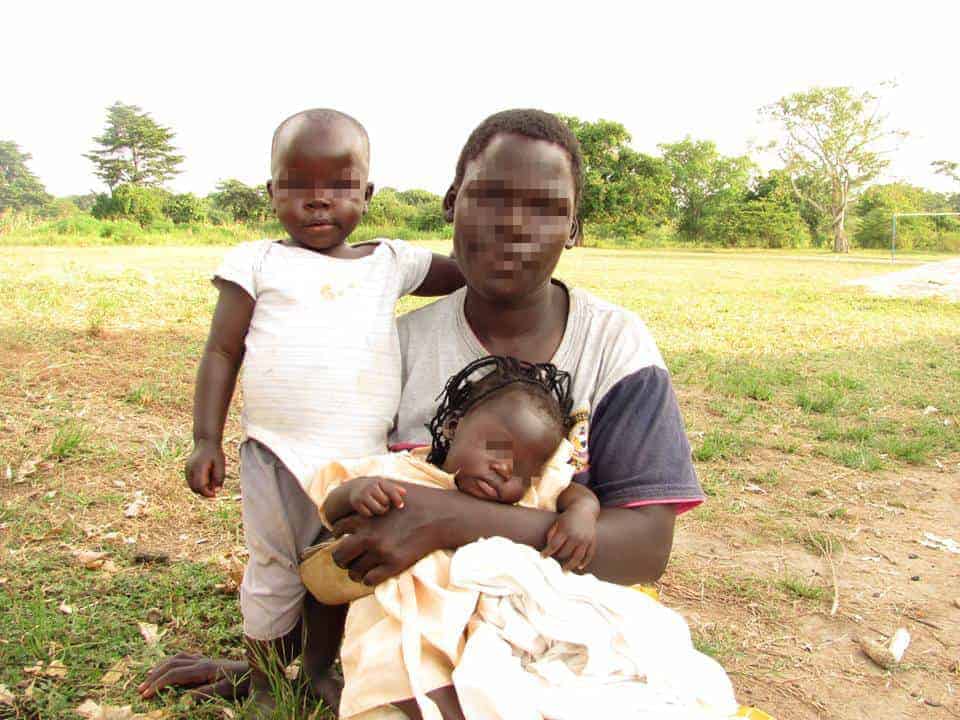In the summer of 2013, I spent my month-long break from my Master’s program in International Development volunteering at a locally run community development organization in Uganda. This blog post is a journal entry I wrote reflecting on my time there about 6 months later.
Written: February 2014
When the heat of the sun’s rays begged my eyelids to open that first morning on the southern plains of Uganda, I awoke startled at the emotions they evoked.
I recall the weight more than anything else. The weight of children and women, and their smiles emitting a façade of peace. Their reality overwhelmed me.
I sensed cheerfulness behind pearly white teeth, but the words escaping them contradicted the happiness they encompassed. Their troubles ran deep, and possessed no simplicity in cause nor resolution.
Brief images from infomercials, textbooks, and movies blended together as I tried to make sense of them. The knowledge I had accumulated in my youth was biased and filtered through ignorance. Its importance rested in the recesses of my brain, but its relevance was lost amongst a world so different from my own.
The pain in their words was tainted with my perception. It’s hard to decipher what I perceived to be true with my analytical western goggles I was taught to wear so tightly. I never felt so naïve as those days I spent in Kibuye Village.
The days passed slowly and solemnly teaching me lessons I could never obtain from a classroom. I tried with all my might to accept cultural norms, taking in each at face value. I respected the lifestyles sustained by the locals. I found myself battling my own morality, despite my mindfulness though.
I wondered how women could endure such hardships and still smile. How their sincerity could beam so brightly that it almost outshined the sun. Yet, I wondered how a culture so warm in nature could simultaneously be so cold towards half its people.
I was determined to uncover a worthy rationale for this widespread behavior. Conversing with men on the matter only contributed to my confusion. I recognized immediately that one month was barely enough time to scratch the surface of understanding, let alone to become part of the solution.
My attempts at ameliorating anything were moot because I was an intruder in an unfamiliar complex society. At most, I was a temporary guest of a complicated place. Every “Mzungu,” I received by a passerby instilled a further sense of complacency in me. I didn’t know how to become more than just a mzungu with an outside perspective, nor was I sure I even had a right to try. I was unable to determine whose ideals were more just while objectively analyzing each aspect of their customs.
Many influences have come and gone in rural Uganda; yet gender remains a prominent determiner of roles. The lines were drawn and the distinction was abundantly clear. Men are superior in strength, intelligence, marriage, health and in rights. Their value far exceeds the worth of any woman, and this perspective was daunting.
My heart ached for women that didn’t have the freedom to marry for love. That did not have the luxury of choosing to start a family when they are mentally and physically prepared. That had accepted a shared marriage as a second or third wife, because of cultural norms. Whom could not read or write but longed to. Whom could not protect themselves or their children from disease nor properly treat it once they contracted one.
Despite all of that, I witnessed hope in the faces of the women I grew to love. I glimpsed life at its purest, without the fog of money and modernity.
For fear of encroaching my views, I refrained from voicing my opinions. The experience became more of an observance, and forced me to reflect inward. The more I reflected, the more lost I became. I scrounged for some semblance of something to offer the women I encountered.
In the end, all I could give was poorly executed English lessons and information about family planning and STDs that most already knew. This most likely did no more than plant a dream in the minds of women without equal rights or opportunities.
I contemplated hypothetical scenarios where I had influence and substantial funds, and therefore the ability to implement relevant projects to help empower women in the community. But I had neither the financial capability nor the skills to make a difference. I only had my desire to help, which was tangled amongst misguided notions from a white middle-class American childhood. My intentions are no different than the many others in a history of fighting against obvious and more dangerous subtle violence that oppresses an enormous part of the world’s population, especially women of color.
I still don’t know exactly where to intervene, but I can see no greater purpose than to attempt to minimize the gender equality gap. Even if the cycle perpetuates itself around me, and my mission gets lost with the millions before mine on the same path. Even if the undertaking is condemned, I cannot turn back.
I have already seen too many voices go unheard to ignore what I’ve encountered. To ignore the powerful voices of the women, who don’t get the same platforms to express themselves.
I will always fight for the strong souls that were dealt a suppressive hand. I left a part of my naive heart in the grasslands along the Nile and I will not know peace until it can be equally shared with the women who showed me what hope and strength is.






